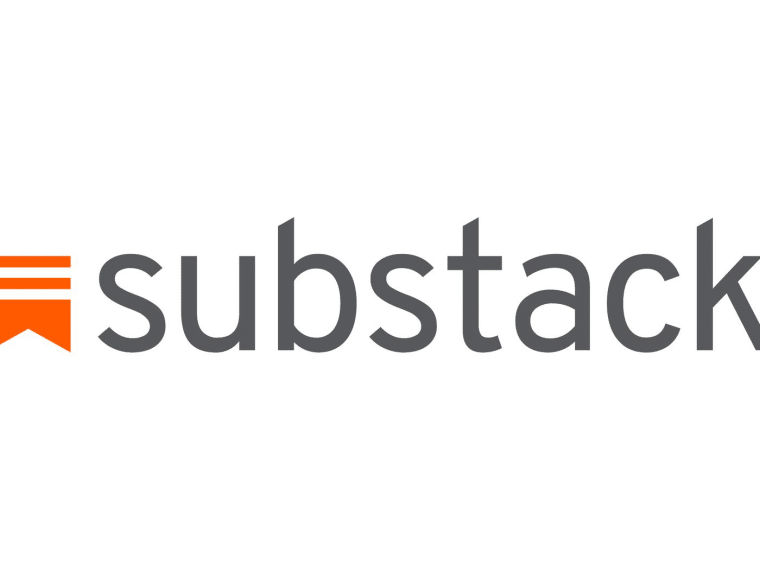
Substack, a newsletter publishing service, on Wednesday announced that it was working on a new product, called Notes, which would be Twitter competitor. To Substack’s surprise, the following day, Twitter restricted Substack writers from sharing tweets in their newsletters. On Friday, the social media platform went further to block Substack’s newsletters from circulating on Twitter.
We started Substack because we wanted the internet to be better for writers and readers.
Today, we're taking a big step towards a better internet.
Introducing Notes, a new way for writing, ideas, and discussion to travel through the Substack network.https://t.co/wsggBTs5dD pic.twitter.com/8sLkmvNc3N
— Substack (@SubstackInc) April 5, 2023
Twitter censored Substack links by prohibiting replies, likes, and retweets to the posts. When a user clicks the retweet button, an error message appears that reads, “Some actions on this Tweet have been disabled by Twitter.”
Ahahaha @elonmusk's crew disabled interactions and replies to even this tweet. Amazing. Free speech absolutism babeeee pic.twitter.com/B8namIPYgq
— Jonathan M. Katz writes The Racket on Substack (@KatzOnEarth) April 7, 2023
While there exist many alternatives to Twitter, Substack has a significant advantage over other recent substitutes which is its number of users. People use Substack, and many writers on the platform already have massive followings there. Such writers include Matt Taibbi and Bari Weiss, who partnered with the Twitter owner, Elon Musk, to publish “The Twitter Files.”
The action taken by Twitter to attack the startup was far from what internet corporations and publishers typically do to rivals. The move gave critics more ammunition to argue that even though Elon Musk has frequently iterated the value of free expression, he hasn’t hesitated to censor rivals and content he doesn’t like.
While he and major media outlets have a history of disagreements, the attack on Substack mostly affects freelance authors, some of whom rely on Twitter to attract readers to their work.
Substack’s founders, Chris Best, Hamish McKenzie, and Jairaj Sethi, when addressing the issue in a statement to the Verge expressed their disappointment in Twitter’s decision to restrict writers. They said, “Writers deserve the freedom to share links to Substack or anywhere else.”
They added that “This abrupt change is a reminder of why writers deserve a model that puts them in charge, that rewards great work with money, and that protects the free press and free speech. Their livelihoods should not be tied to platforms where they don’t own their relationship with their audience, and where the rules can change on a whim.”
Substack’s new app
Substack’s new product, Notes, has many similarities to Twitter. Users can make short updates on it, and others can like, repost, or comment on them just like on Twitter. Additionally, the app will function like Substack’s recommendation feature but can allow writers to recommend more than their publications including posts, quotes, comments, images, and links.
Twitter’s action has attracted outrage from writers one of who said “I cannot explain how absurd and silly this is. Not to mention petty and vindictive.” Matt Taibbi, one of Substack’s most well-known authors and Musk’s fan, tweeted on Friday that he was “alarmed” by Twitter’s Substack limitations and that he would stop using the social media platform in favor of Substack Notes.
Matt Taibbi emails subscribers to his Substack saying he will no longer be using Twitter because of the platform's restrictions on engaging with Substack links pic.twitter.com/o6o6ZswxDO
— Max Tani (@maxwelltani) April 7, 2023
The migration from Twitter has begun with many writers opting for alternatives including the new Notes app. Hunter Harris, writer of the Hung Up newsletter on Substack said, “Any Twitter alternative would be great. I want another place just like Twitter that’s not Twitter.”
Twitter’s way of frustrating rivals
This is not the first time that Musk has censored competing rivals’ content on Twitter. In December, Twitter took action to block content from Mastodon, an open-source social network that experienced a rapid surge in users after Musk acquired control of Twitter.
Twitter temporarily suspended Mastodon’s account and banned posting links to Mastodon servers. On its formerly banned Twitter account, Mastodon said, “Not a good sign if you need to build a wall to keep people in.”
Additionally, Mr. Musk heightened his ongoing dispute with the media outlet, The New York Times. He removed the verification check mark that distinguished the outlet’s Twitter account from impersonators last Saturday. Although Mr. Musk had stated that Twitter would begin removing verification badges on April 1, the majority of verified accounts have continued to display their checkmarks.
On Wednesday, Musk went further as to add a label to the Twitter account of NPR, calling it “state-sponsored media.” The term, which the platform had previously used to denote propaganda sources, drew criticism from press freedom organizations seeing as the government has no hand in NPR’s content.
Related News:
- New Keyless Car Theft Method: Hackers Inject Malicious Code via Headlight or Taillight Wires to Start Cars
- Anthropic Aims to Raise $5 Billion to Compete with OpenAI
- ChatGPT-Powered Bing Keeps Saying No, But Microsoft Update Will Make it More Cooperative
Love Hate Inu - Next Big Meme Coin
- First Web3 Vote to Earn Platform
- Latest Meme Coin to List on OKX
- Staking Rewards
- Vote on Current Topics and Earn $LHINU Tokens